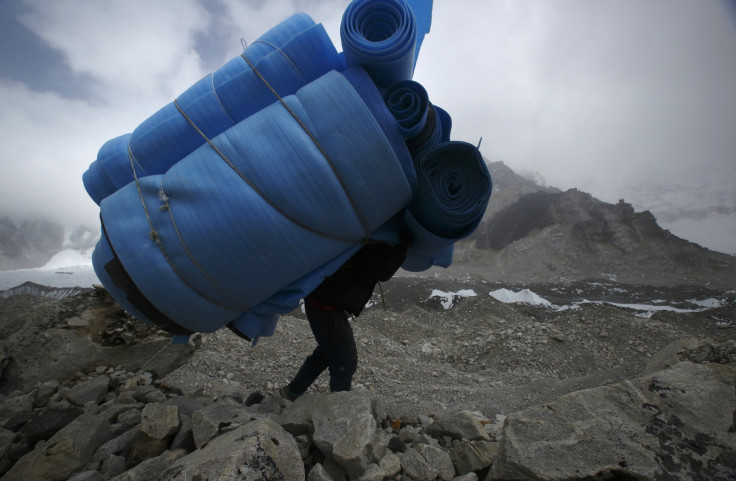Himalayan Range Faces Ecological Threat from Plastic Littered by Tourists and Trekkers

Plastic bottles, wrappers and polythene covers mark the trail in most parts of the Himalayan range in Himachal Pradesh and Uttarakhand states of north India which are open to tourists and trekkers.
Trekkers are reported to be the main culprits contributing to "water bombs" which can flood the area.
Non-biodegradable plastic waste absorbs heat resulting in rise in temperature and melting of glaciers, aggravated by global warming.
These then go to form "water bombs" or lakes which pose a threat of flooding with increasing water flowing in, reports the Times of India.
There are 249 glacial lakes in Himachal Pradesh and 11 have been identified at potential risk of breaching.
"No one knows when the lakes would burst in the next 20, 30 or 50 years," says R K Ganjoo, a specialist in quaternary geomorphology, climate change and glaciology, from Jammu University.
The problem becomes even more worrisome given that the region has around 12 hydro-electric projects with many new ones in various stages of completion.
In the Uttarakhand Himalayas which has 127 glacial lakes of varying sizes, there are 12 hydro-power projects with an installed generation capacity of 1,280 mega watts.
Another 18 projects with a total installed capacity of over 6,000 mega watts are under construction. Glacier melt and lake bursts will have their impact on these projects.
According to scientists monitoring the situation, plastic waste is higher in the areas frequented by trekkers than in the lower regions that serve as tourist spots.
The former was as high as 84% of the total waste generated in 2005 while the latter stood at 35%. The numbers are sure to have gone up in the decade since then.
Ironically, it was the Himachal Pradesh government that had first imposed a ban in 2009 on the use, storage, sale and distribution of all types of polythene bags and extended this to all other non-biodegradable disposable plastics with a stiff fine. The ban and fine seem to be largely ignored.
Plastic is ubiquitous in Indian cities. The country's plastic production is 2.5 million tonnes against a world total of 105 million tonnes.
Most of it ends up polluting the environment. The Central Pollution Control Board informed India's Supreme Court last year that the country generates 5.6 million tonnes of plastic waste annually.
A handful of cities have imposed a ban but there is hardly any implementation.
© Copyright IBTimes 2025. All rights reserved.





















